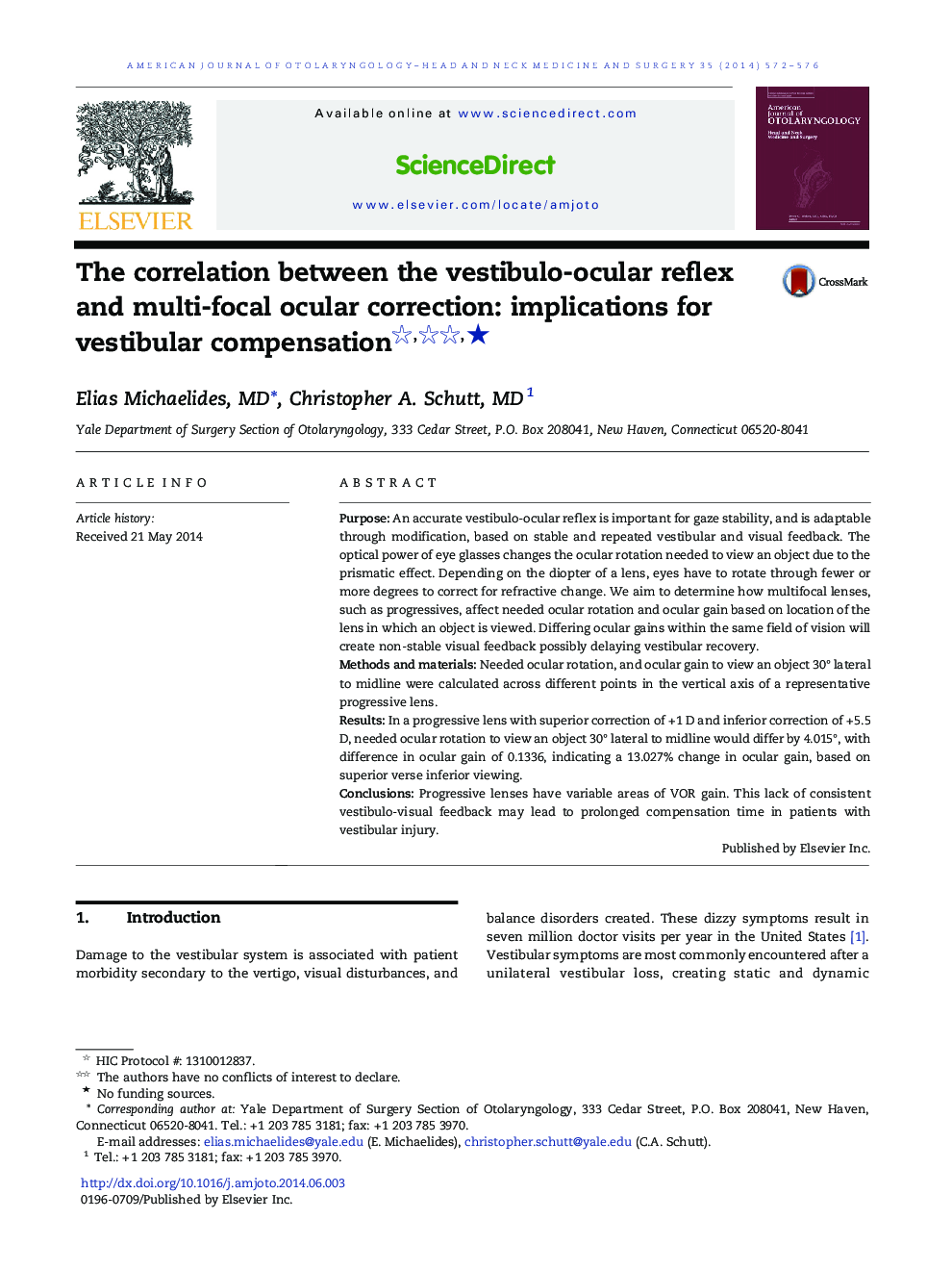| Article ID | Journal | Published Year | Pages | File Type |
|---|---|---|---|---|
| 4103346 | American Journal of Otolaryngology | 2014 | 5 Pages |
PurposeAn accurate vestibulo-ocular reflex is important for gaze stability, and is adaptable through modification, based on stable and repeated vestibular and visual feedback. The optical power of eye glasses changes the ocular rotation needed to view an object due to the prismatic effect. Depending on the diopter of a lens, eyes have to rotate through fewer or more degrees to correct for refractive change. We aim to determine how multifocal lenses, such as progressives, affect needed ocular rotation and ocular gain based on location of the lens in which an object is viewed. Differing ocular gains within the same field of vision will create non-stable visual feedback possibly delaying vestibular recovery.Methods and materialsNeeded ocular rotation, and ocular gain to view an object 30° lateral to midline were calculated across different points in the vertical axis of a representative progressive lens.ResultsIn a progressive lens with superior correction of + 1 D and inferior correction of + 5.5 D, needed ocular rotation to view an object 30° lateral to midline would differ by 4.015°, with difference in ocular gain of 0.1336, indicating a 13.027% change in ocular gain, based on superior verse inferior viewing.ConclusionsProgressive lenses have variable areas of VOR gain. This lack of consistent vestibulo-visual feedback may lead to prolonged compensation time in patients with vestibular injury.
